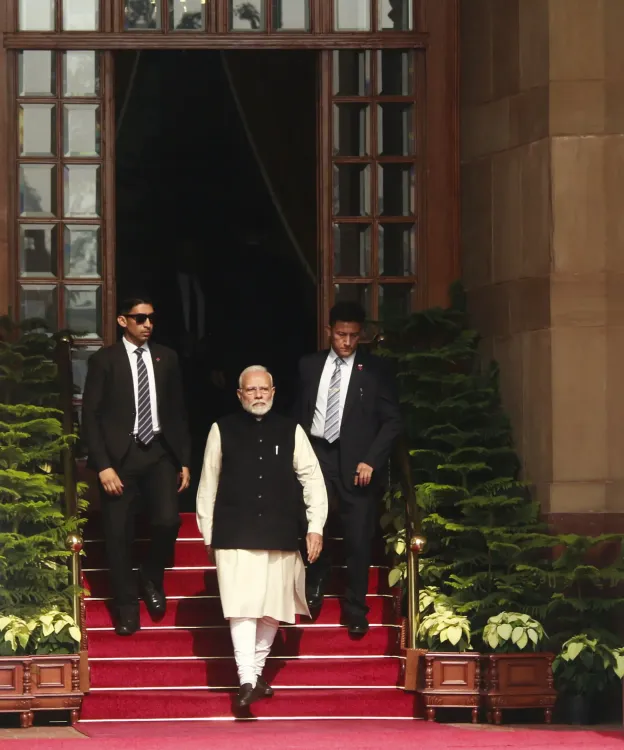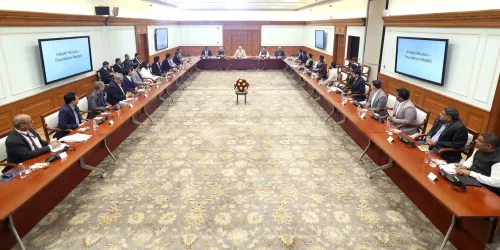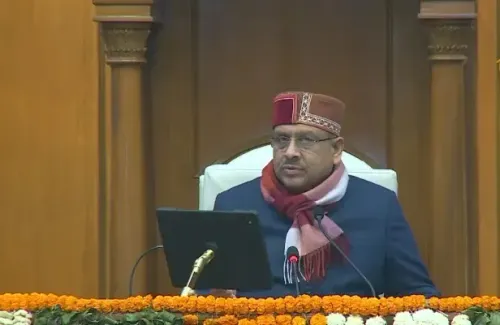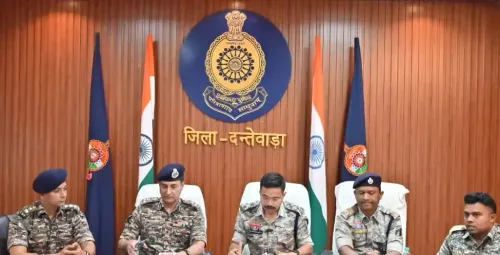BJP's Victory in Maharashtra and Haryana Driven by PM Modi's Enduring Appeal; Rahul Gandhi's Constitutional Claims Falter: Matrize Survey

New Delhi, Dec 20 (NationPress) The BJP decisively outperformed the Congress and other opposition parties in the recent Assembly elections held in Maharashtra and Haryana.
The party secured victories in both states and established new governments.
The Matrize Survey provides insights into the reasons behind the BJP's remarkable success in these regions, particularly in light of its weaker performance in the 2024 Lok Sabha elections.
The survey identifies several key factors, including the enduring influence of Prime Minister Narendra Modi and the inability of the Congress-led opposition to effectively challenge the BJP.
Additionally, it sheds light on the evolving voter sentiments between the two electoral contests.
The Congress' efforts to leverage a narrative centered on ‘constitutional changes’ did not resonate with voters during the Assembly elections.
This survey was conducted from November 25, 2024, to December 14, 2024, with a sizable sample of 76,830 in Maharashtra and 53,647 in Haryana.
Key findings from the Matrize Survey include:
1. Enduring popularity of PM Modi
Even though the BJP secured only 240 seats in the Lok Sabha elections this year, PM Modi maintained substantial popularity among voters in both Maharashtra and Haryana, according to the survey. His reputation as a strong and influential leader persisted. This finding is crucial as it shows that voters in both states retained a strong trust in PM Modi, which significantly influenced the results of the Assembly elections. Approximately 55% of respondents in Maharashtra noted an increase in PM Modi’s popularity, while 53% in Haryana observed a similar trend.
2. Setback to Congress' narrative on the Constitution
A major insight from the Matrize Survey was the failure of Congress' narrative, which Rahul Gandhi had crafted during the Lok Sabha elections, claiming that the Modi government aimed to alter the Constitution. While this narrative gained some traction during parliamentary elections, it failed to resonate during the Assembly elections in Maharashtra and Haryana. The Congress' attempts to highlight issues like constitutional changes, farm laws, and the concerns of wrestlers did not capture voter attention, leading to a shift in support towards the BJP.
3. Voter perception of Congress leadership
Another critical finding is the significant lack of trust in Congress leader Rahul Gandhi, who was viewed as the opposition's face in Maharashtra and Haryana. His inability to offer a credible alternative to PM Modi resulted in the Congress's poor performance. Voters expressed skepticism about the Congress' leadership, seeing Rahul Gandhi as detached from real-world issues, particularly when juxtaposed with PM Modi’s strong and decisive persona. This perception played a crucial role in the BJP's commanding victories in these states.
4. Shift in voter sentiment between Lok Sabha and Assembly elections
The findings suggest that many voters in Maharashtra and Haryana, who previously chose not to vote for the BJP in the Lok Sabha elections, rectified their decision in the Assembly polls. A significant reason for this change was the growing confidence in PM Modi’s leadership and the positive impact of the central government’s actions on their lives. The opposition's failure to present a coherent and convincing alternative led to a clear preference for the BJP in the state elections.
5. BJP's strategic messaging and leadership
The Matrize Survey also emphasized the effectiveness of the BJP’s messaging during the Assembly elections. The slogan “Ek Hain to Safe Hain (When united, we are safe)” resonated well with voters, particularly in Maharashtra and Haryana. This narrative focused on stability, national security, and economic growth under PM Modi’s leadership, positioning the BJP as the safer option.
Conversely, the Congress’ divisive rhetoric and internal leadership struggles only served to alienate voters. Their inability to counter the BJP’s narrative effectively was evident, especially as the public grew disenchanted with the Congress' internal conflicts.
6. Local leadership and organizational factors
In Haryana, the transition in leadership from Chief Minister Manohar Lal Khattar to new figures also played a role in the BJP’s success. The survey indicates that this leadership change helped restore trust, with 44% of respondents acknowledging its significant positive impact. Furthermore, the presence of strong local BJP leaders and a well-coordinated campaign contributed to the party's solid foundation, further ensuring its triumph.
7. The role of government schemes and local support
The BJP’s emphasis on local issues and welfare initiatives significantly influenced voter backing. In both states, the BJP government’s efforts, especially in agriculture, infrastructure, and rural development, yielded positive responses. These initiatives resonated with voters, who felt they benefitted from government policies.
Considering all these factors, the Matrize Survey provides a clear understanding of why the BJP triumphed in the Assembly elections in Maharashtra and Haryana.
Several interconnected factors contributed to this victory: the lasting popularity of PM Modi, the erosion of the opposition's narrative, particularly the Congress' attempt to leverage constitutional changes which did not resonate in the Assembly elections, voter corrections from their prior Lok Sabha choices, especially in light of the BJP’s effective governance and message of stability, and the BJP’s strategic use of leadership changes, messaging, and welfare programs to consolidate support.










